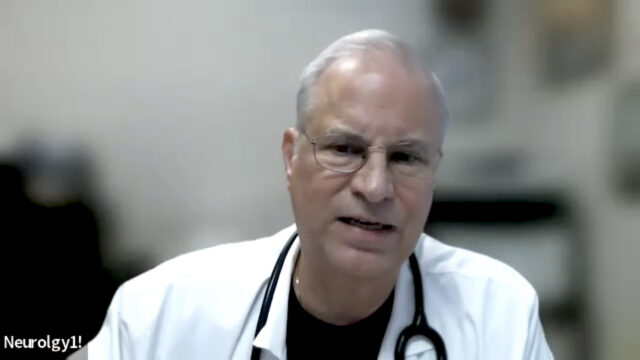Welcome back everyone who answers for Alder’s Radio network. And we are talking with Dr Paul Winner, who is the Senior Director of the Premier Research Institute and the director of the Memory Disorder Center. And Dr Winner, thank you for being with us today as we’re talking about Alzheimer’s disease, how it comes on, what happens, and all of those crazy things that go on in our world regarding this illness. So thank you for being here.
– Thank you. I appreciate the invitation to address this incredibly important topic. But a key issue is that it’s changing quickly. We’re learning in the more about the illness and we are starting to see medications that look very promising. But the first step is recognizing that there’s a problem. The second step is to define it, is that problem Alzheimer’s, or is it something else? That’s a key issue here. Patients present to us with various symptoms that could be consistent with dementia. Again, we have to figure out what that is. First of all, is it truly a dementia problem, or is it something that is something else, medically, it could be as simple as a item and efficiency, which is unfortunately not too common, but we do see it once or twice a year, or something as simple as medication adjustments. Again, when we see a very short or a quick change in memory, someone’s only had a problem for three or four months, and it’s significant, that’s usually not a dementia of Alzheimer’s type because Alzheimers takes so long to take place, ten fifteen, twenty, twenty two years plus to present itself. It’s a very slow, progressive disorder, so the timing of it, the history of it. But I think if people are concerned one of the key issues is they have to get to a doctor. They have to get to someone who’s familiar with this disorder. In the past, a lot of doctors haven’t spent a lot of time on this because we didn’t have any really good, effective treatments called disease-modifying therapies where we could actually change the course of the illness, at least of the disease we call Alzheimer’s, but that’s changing. There’s many types of dementias, we’re studying many, we’re doing studies in various forms: Parkinsonian dementias, in Alzheimer’s dementia where we have our major studies, but even other aspects, Lewy bodies dementias, vascular dementias. There are things that can be done to diagnose and also to consider some early treatment.
Some of the key things that people have to recognize we call risk actors. You want to first of all, avoid this as best you can. You don’t want this to happen, even if you’re predisposed genetically to develop it. There are some things you can do to help yourself now. One of those is really simple, have your hearing checked. It’s so easy to find out if you have a hearing deficit and to correct it today with hearing aids. That goes a long way.
Correct your vision. If you have visual impairments, you want the best input into your brain so you can do your functions properly as best it can.
If you’ve got metabolic syndrome, get it under control. If you have diabetes, control it as best as you can. Check your blood pressure. Studies have shown — the Sprint Mind study showed that controlling blood pressure clearly reduced the development of dementias. What am I saying about controlling blood pressure? You want your blood pressure at 120 over 70 or less. Now obviously, if you’re symptomatic with a low blood pressure, you can’t do that, but most patients can, and you want to do that as soon as you possibly can. Again, everything I’ve just told you, it is so simple and so easy to do. In our country, unfortunately, we are not getting thinner. We seem to always getting a little on the other side. Overweight obesity is another risk factor hard to control. I surely don’t have all the answers for that one, and we haven’t figured that all out. But you do your best to avoid certain foods. so diet is important. You don’t want to wait till you have the symptoms, you have the disease. You want to get in front of it as best you possibly can.
Alcohol consumption, there’s a lot of questions about whether it’s safe, what’s the right amount? Basically none is the best, but if you’re going to use it, it needs to be small quantities. The exact quantities are not clear. Remember, what do we use alcohol for a clinical practice? We use it to clean off our tables, to kill viruses and bacteria. It is a caustic substance, So is it caustic inside us? Well, it cleans tables really well, so I’ll leave that for your own devices.
Head trauma, please don’t do things that will ultimately result in you having a head injury, especially after the age of 40. If you’re predisposed to develop that toxic amyloid genetically, and you hit your head, you’re gonna accelerate that process. Do not go fix the roof if you’re 40 or 50. Hire someone to do that. I can’t tell you how many patients I have taken care of that have fallen off ladders when they were fixing gutters or the roof. Get someone to do that for you, if at all possible.
Avoid things that’ll cause trouble. Wear a helmet on your bicycle. If you’ve got problems with balance, use a stationary bike inside a protected area. There’s some things you can do. Don’t wait till you get a subdural. I lost a good friend because, unfortunately, he had an injury resulted in a subdural that clearly could have been prevented, and he’s not with us anymore. It accelerated the dementia aggressively, and within a matter of years he was no longer alive.
– I can only imagine, because I know that early onset tends to progress quicker, is that true? That’s what I’ve learned.
– It can be true for an individual, because Alzheimer’s dementia is not one entity. There are multiple gene issues. Every patient’s a little different. I’ve seen some patients when we’ve diagnosed them in the early dementia days and they’ve only lived five or six years. I’ve had others that have lived ten to fifteen. So it is dependent upon the individual and their genetic factors. One of the simplest things we do, we have tests called APO E, and we can test whether someone has number 4, which is not the one you want to have, that’s a higher risk factor for developing AIDS genetic risk factor, or 3, which is average, and 2, which is protective. So we are essentially maturing most of the younger people, in fact we test our own patients here. Just about every patient over 65 has been tested. It’s important to know that it’s a risk factor. We can counsel them. It’s very important to know for new treatment algorithms.
– And of course, my mom she had vascular dementia. She was a heavy smoker for many years. She got COPD, She had vascular issues in her legs, and all kinds of things. As as she got older, dementia progressed. So I’m gonna just throw out there, I bet that smoking is part of it in life. When you talked about diet, I am betting that there’s other things that we can do better.
– Yeah, smoking is definitely low-hanging fruit there. Again, it’s not easy for someone who’s been smoking for decades to quit, but even if they reduce the smoking, that’s a positive.
And you’ve talked about issues of diet. You know, we have societies around, not only our own practices, but there’s the you know, Alzheimer’s Association. There are national and local chapters that can help you. There’s many organizations out there in American Academy of Neurology. There are many medical and non-medical organizations that can give you some ideas about diet. Diet is complex. There are there’s a Dash diet, there’s a finger diet, there’s the Mediterranean diet. The diet that you can handle, that you can do, is the right one for you. There are some that statistically seem a little bit better. But some simple things is, most Americans can kind of do the Mediterranean diet, but you may want to limit some of the saturated fats, like some of the cheeses, maybe switched to some of the vegetarian options. You don’t have to completely drop all of cheese, but try to limit it a little bit. You know, the oils are important. Try to use a good olive oil, an avocado for some of the saturated and unsaturated fat options. There are little things you can do with the Mediterranean diet that can help you to make it even better. The more difficult diets are hard. They are almost like if to go to school to really learn how to do them properly, it is worth it if you can do that. The Mediterranean diet’s pretty simple and that’s a simple thing. And again the societies can help you.
I didn’t mention exercise, but controlling your blood pressure, exercise, are the two single best things you can do outside of getting your hearing checked.
– You conduct clinical trials, and we’re going to talk about this later in the hour, but if somebody wants to get tested how do they get tested? Do they go to their primary doctor?
– The best way to do this, and now that we have medications that are clinically functioning — I don’t want to be too optimistic here because we’re still doing the research and this is early data, but it’s very positive on our side, and I’ll talk about numbers in a few minutes. We need to get the diagnosis correct, which means just getting a simple essentially evaluation of history and physical, that’s not enough anymore. You need a neuro-behavioral test administered by people who are very good at doing this. That’s a basic assessment. Then you’re gonna have to get into much more detail medically to actually get the diagnosis right, because, essentially, Alzheimer’s is about 60 to 70 percent of the dementias. You mentioned vascular dementia, that could be about 20 percent. They can coexist where you can have Alzheimer’s and vascular. You have to understand that, in fact, the majority of them are mixed when we actually see autopsies, but there is a predominant version on top of that. So you need to go to a center who’s familiar with that. And everything is changing very quickly. We should have FDA-approved medications, we have one right now that is disease modifying, but we should have several, very soon, available.
– So, in the meantime, Dr Winner, how do we reach you?
– Well, the simplest way is call me by phone. It’s area code (561) 851-9400, or to use a website connection at Premier Research Institute, that’s https://premiereresearchinstitute.com/.
– Fabulous. And next segment we’re going to talk about how is Alzheimer’s disease diagnosed and how accurate is the testing, right after this.













